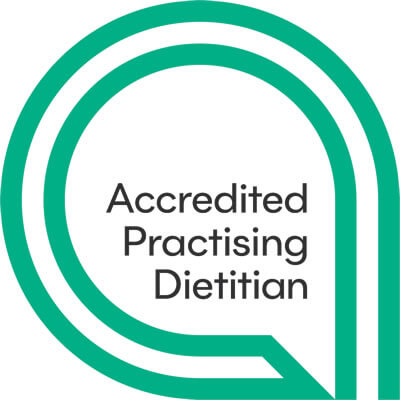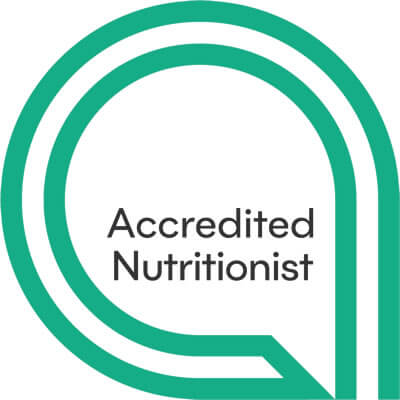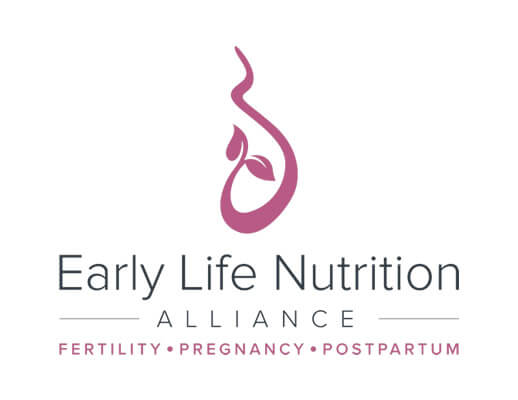Why Gut Health is Your Secret Weapon for a Healthy Pregnancy
Pregnancy is a remarkable journey filled with excitement and anticipation. Every expecting mother wishes for a smooth pregnancy and a healthy baby and proper nutrition is at the heart of this dream. Did you know that your gut health plays a crucial role in shaping your health and that of your little one?
What do we mean by Gut Health?
The digestive system is a thriving ecosystem, teeming with trillions of tiny microbes called the gut microbiome. These bacteria play a vital role in digestion, immunity, mental well-being and even foetal development. Throughout pregnancy, this delicate ecosystem undergoes its own transformation, mirroring the changes in your body.
In this post we'll explore the following:
- The Pre-Pregnancy Connection: How optimising your gut health before conception can set the stage for a healthy pregnancy.
- The Journey of Pregnancy: Understanding the intricate dance of hormones, your food choices, and microbes during those nine months.
- A Healthy Start for Baby: How your gut microbiome shapes your baby's immune system and future health.
- Postpartum Transformation: Navigating the changes in your gut microbiome after childbirth and supporting your own well-being.
- Nurturing your baby’s microbiome as it grows: how you can help influence the development of your baby’s gut microbiome as it grows
The Pre-Pregnancy Connection
The Importance of Gut Health and Fertility
Optimal gut health plays a crucial role in supporting both male and female fertility by:
- Balancing hormones: detoxifying oestrogen and progesterone, key players in ovulation and a healthy uterus. Maintaining optimal insulin levels necessary for healthy egg and sperm development
- Managing inflammation: preventing disruption to essential processes in egg and sperm development. Strengthening the gut lining and immune system by minimising permeability to harmful proteins and pathogens.
- Absorbing nutrients: ensuring a healthy environment for eggs, sperm, and the uterine lining.
- Reducing stress: maintaining a calmer internal environment with a reduction in stress hormone production
As such, maintaining a diverse gut microbiome by minimising external stressors like antibiotics, toxins and stress and improving lifestyle interventions such as food quality, physical activity and sleep, is a powerful step towards optimising your fertility potential. Further reading on The impact of the gut microbiota on the reproductive and metabolic endocrine system.
The Journey of Pregnancy
Baby on the Brain? Don’t Forget your Gut!
During pregnancy, your body goes through significant changes, making sure everything's set for your baby's growth and the big arrival.
Rising levels of oestrogen and progesterone aren't just there for the hormonal roller coaster; they actually change the makeup of your gut microbiome, impacting its health and how you break down food. During pregnancy, the microbiome has several roles including maintaining a healthy pregnancy, promoting foetal development, improved bowel function and supporting mum’s immune system while laying the foundation for your baby’s immunity.
Possible Complications Linked to Poor Gut Health During Pregnancy
While research is ongoing, there is some evidence to suggest a link between changes in a woman's gut microbiome and certain pregnancy complications like preterm birth, pre-eclampsia, and gestational diabetes. More research is needed, however the role the gut microbiome plays in supporting our immune and metabolic function can not be understated.
Premature Birth:
Recent studies identified the presence of gut bacteria in the amniotic fluid of women experiencing preterm deliveries. This suggests a possible link between disrupted gut, vaginal, or oral microbiomes and an increased risk of premature birth.
Pre-eclampsia:
This serious pregnancy complication, characterised by elevated blood pressure, liver dysfunction, and reduced birth weight, affects 3-5% of pregnancies in Western societies. The microbiome's influence on metabolic regulation and blood pressure control during pregnancy necessitates further investigation. Read more in the published study on Early-Onset Preeclampsia Is Associated With Gut Microbial Alterations in Antepartum and Postpartum Women
Gestational Diabetes Mellitus (GDM):
Gestational diabetes can raise risks for both mother and baby, including pre-eclampsia, caesarean deliveries, neonatal hypoglycemia, and macrosomia. Additionally, it increases the mother's risk of developing type 2 diabetes and cardiovascular disease later in life (Ye et al., 2019). Interestingly, studies demonstrate a similarity in gut microbiota composition between women with GDM and individuals with type 2 diabetes outside of pregnancy.
By prioritising a healthy gut microbiome through appropriate nutrition and lifestyle measures, pregnant women can potentially reduce the likelihood of encountering some of these pregnancy complications.
A Healthy Start for Baby
The legacy of mum’s microbiome for her baby
From the very first moments in the womb, your baby's gut health starts on its incredible journey. Believe it or not, your baby inherits 100% of their initial microbiome from you. Even placenta and amniotic fluid harbour unique bacterial properties, influencing your baby's exposure to those beneficial microbes. For this reason, looking after your gut health is so important in laying the correct foundation for your baby’s.
After birth, your baby's gut microbiome explodes in diversity, shaped by multiple factors like gestation age at birth, the type of birth delivery, breastfeeding or formula feeding, skin contact, early infection and antibiotics and then introduction of solid foods. These early influences can hold far-reaching consequences, impacting their health and well-being throughout life.
So in an ideal scenario, what are some of the things that can increase the transfer of beneficial maternal microbes and promote your baby’s protective barrier and immune system?
- A natural vaginal delivery unless otherwise indicated by your medical team
- Skin-to-skin contact immediately after birth
- Colostrum soon after delivery
- Exclusive breastfeeding until 6 months of age
The benefits of promoting a super charged microbiome for your little one are many:
- Fewer Allergies and Eczema: A healthy diverse microbiome, trains the immune system to recognise the good guys from the bad, and minimises reactions to harmless triggers, reducing the risk of allergies and eczema.
- Strong Immunity: Picture a thriving community of gut bacteria acting as tiny guards, protecting your baby from invaders. A diverse microbiome translates to a robust immune system as well as a strong intestinal lining which provides a protective barrier, ready to combat harmful insults to your little one’s body.
- Improved digestive and bowel function: The gut microbiome is essential for supporting effective digestion, absorption and synthesis of important nutrients while also aiding good bowel function.
- Reduced Inflammation: A diverse gut microbiome can act as natural firefighters, preventing inflammation and flare-ups while promoting overall well-being.
Further reading on Gut microbiome, the development and impact of disease.
Postpartum Transformation
Nurturing Your Gut After Giving Birth
Childbirth triggers a cascade of changes within your body, including your gut microbiome. Let's look into these changes and explore ways to support your gut health and overall well-being during this crucial period.
- Hormonal Shifts: The dramatic drop in oestrogen and progesterone levels post-delivery can negatively impact gut bacteria composition and functionality of your digestive system.
- Sleep Deprivation: The disruption of sleep patterns common in the postpartum period can adversely affect the gut microbiome, reducing the diversity of beneficial bacteria. This imbalance can impact nutrient digestion and absorption, essential for recovery.
- Nutritional Changes: The body's increased nutritional needs post-birth for healing and, if applicable, breastfeeding, are pivotal. Inadequate nutrition can shift the gut microbiome composition, affecting the immune response and recovery speed.
- Elevated Stress Levels: Postpartum can be a period of heightened stress, negatively influencing the gut microbiome by promoting inflammation and reducing microbial diversity, potentially leading to mood disorders.
- The Importance of Supporting Gut Health: Promoting a healthy gut microbiome is vital for a mother's physical recovery and emotional well-being during the postpartum period.
Discussing the importance of gut health in the postpartum period is crucial, particularly in relation to its role in supporting mood and safeguarding against conditions like postpartum depression and anxiety. Prioritising the quality of your food after giving birth is not only essential for healing and recovery but also plays a significant role in enhancing breast milk production and quality. This, in turn, benefits your baby by supporting the development and maturation of their microbiome. A healthy gut can contribute to improved mood and emotional well-being for new mums, making it an important aspect of postpartum care.
Nurturing your Baby’s Microbiome as they Grow
Nurturing your baby's microbiome is a vital aspect of their early development, significantly influenced by feeding practices and nutritional choices during early life.
The period immediately after birth and the feeding approach we adopt plays a foundational role in establishing a strong and well-balanced microbiome, foundational in your baby’s healthy start and long-term well-being.
Here's how each stage contributes to a healthy gut:
- Colostrum: This first milk is a superfood for the baby's microbiome, packed with a diverse number of immune promoting, antibodies and fighter cells, nutrients and beneficial bacteria, setting the stage for a strong immune and defence system.
- Breastfeeding: Continues to enrich the baby's gut with a diverse array of microorganisms, easily absorbed nutrients and prebiotics that feed your baby’s microbiome, aiding it’s development and diversity.
- Introduction of Solids: Incorporating a variety of whole foods and fibre-rich foods as first foods further enhance the gut microbiome, promoting immune health and well-being.
What you feed your baby plays a key role from the very beginning in developing a complex and healthy gut ecosystem, supporting your baby's health.
Start Improving your Gut Health Today
Enhancing your gut health is a powerful step you can take today to contribute to your overall well-being, especially in the postpartum period. By focusing on your food choices, you can directly influence the balance and health of your gut microbiome, which plays a crucial role in digestion, immunity, and even your mood. Starting with some straightforward nutritional adjustments, you can begin this journey towards a healthier digestive system and a more resilient body.
Simple nutritional strategies you can start thinking about today to improve the integrity of your digestive system, reduce inflammation and promote a more protective gut microbiome include:
- Enjoy a variety of whole foods
- Reduce saturated fat and ultra-processed foods
- Limit artificial sweeteners, emulsifiers and flavourings
- Eat more lean and plant proteins
- Add and cook with healthy unsaturated fats
Are you ready to unlock the full potential of gut health for your pregnancy journey?
Schedule a consultation with our expert dietitians at Simple Steps Nutrition today! Together, we'll craft a personalised plan that empowers you to feel your best before, during and after your pregnancy while nurturing your baby.
Further Reading
The Microbiome and Preterm Birth
(Staude, et al., 2018)
Microbiome Changes in Pregnancy Disorders
https://www.mdpi.com/2076-3921/12/2/463
Exploring the Role of Gut Bacteria in Health and Disease in Preterm Neonates
https://www.ncbi.nlm.nih.gov/pmc/articles/PMC7579082/
Gestational diabetes is associated with change in the gut microbiota composition in third trimester of pregnancy and postpartum
https://pubmed.ncbi.nlm.nih.gov/29764499/
Gestational diabetes mellitus and adverse pregnancy outcomes:
https://www.bmj.com/content/377/bmj-2021-067946.long
Estrogen-gut microbiome axis: Physiological and clinical implications
https://pubmed.ncbi.nlm.nih.gov/28778332/
Tremellan and Pearce (2012) Dysbiosis of Gut Microbiota (DOGMA)








